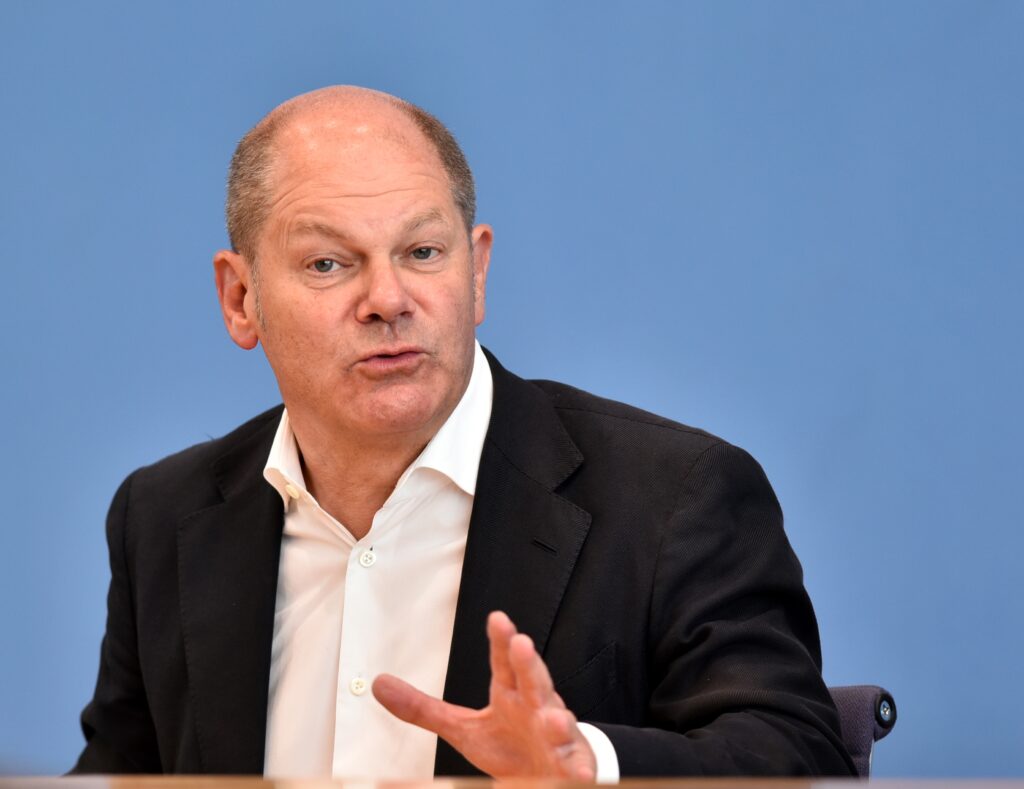Germany’s outgoing government has announced the extension of border controls for an additional six months, a move aimed at curbing irregular migration. The decision, made just weeks before the country’s federal election on 23 February, has intensified the political debate over migration in the country. Chancellor Olaf Scholz confirmed on Wednesday that the European Commission had been officially informed about the extension, which will now remain in place until 15 September.
Government Defends Border Control Measures
This announcement comes amid growing concerns over the impact of irregular migration on Germany’s security and economy. Scholz, who has been under pressure from both political opponents and public opinion, defended the measure as a necessary step. “The border controls are proving effective in curbing irregular migration. The numbers clearly support this,” Scholz stated in a press briefing.
Impact of Border Controls on Migration Numbers
The border controls were first introduced last autumn in response to an increase in irregular migration across Germany’s borders. Since their implementation, German authorities have turned back 47,000 individuals at the borders, observed a one-third decline in asylum applications, and detained 1,900 suspected smugglers. The measures, which initially targeted neighboring countries like Poland, the Czech Republic, Austria, and Switzerland, were later expanded to include borders with France, Luxembourg, the Netherlands, Belgium, and Denmark.
Schengen Zone and Temporary Border Controls
Under the Schengen Agreement, which allows visa-free travel across most EU member states and includes Switzerland as a non-EU participant, temporary border controls can be introduced in response to significant security threats. However, these controls are meant to be a last resort and must remain temporary. The extension of the border checks marks a significant development in the ongoing debate over the balance between national security and freedom of movement within the European Union.
Mixed Reactions to Extended Border Controls
The measures have been met with mixed reactions within Germany and across the EU. Supporters of the government’s approach argue that the controls are essential for maintaining national security and addressing the strain on Germany’s asylum system. They point to the numbers, which show a notable reduction in illegal crossings and asylum applications, as evidence that the measures are working.
Opponents, however, have raised concerns about the long-term impact on the Schengen zone and the principles of free movement within the EU. Critics argue that prolonged border controls could undermine the integrity of the Schengen area and lead to increased tensions between EU member states. Some fear that the extension of the border measures could set a dangerous precedent for other countries to follow, further eroding the EU’s commitment to open borders.
Migration Policy as a Central Election Issue
As the federal election approaches, migration policy has become one of the most significant issues dominating the political discourse in Germany. The topic has sparked heated debates between the incumbent government and the opposition, with each side offering differing solutions to the migration challenge.
Friedrich Merz’s Stricter Border Control Proposal
Friedrich Merz, the leader of the opposition Christian Democratic Union (CDU), has made migration policy a central focus of his campaign. Merz, who is considered the leading candidate to replace Scholz as chancellor, has called for even stricter border controls, arguing that Germany must take a tougher stance on illegal immigration. He has vowed to introduce permanent border controls if elected, claiming that such measures are necessary to protect Germany’s borders and prevent uncontrolled migration.
Scholz Defends the Government’s Approach
Merz’s position contrasts sharply with that of Scholz’s government, which has argued that the existing border controls are sufficient and should remain temporary. However, Merz has criticized the European Union’s approach to migration, calling EU regulations ineffective and inadequate in addressing the challenges posed by irregular migration. He has called for national legislation to take precedence over EU rules, urging Germany to act independently when it comes to border security.
In response, Scholz has defended his government’s handling of migration, emphasizing the importance of EU cooperation in addressing the issue. He has pointed to Germany’s role as a key member of the EU and the need for a unified approach to managing migration and security across Europe.
The Election and the Future of Germany’s Migration Policy
The upcoming election is likely to serve as a referendum on the future direction of Germany’s migration policy. With migration becoming a central issue in the campaign, both the government and opposition are positioning themselves to appeal to voters who are increasingly concerned about the country’s security and immigration policies.
As the debate continues, it is clear that migration will play a decisive role in the election outcome. The policies put forward by both Scholz’s government and Merz’s opposition will have lasting implications not only for Germany’s future but for the broader European Union as well. With the extension of border controls now in place, it remains to be seen how voters will respond to the measures and what impact they will have on the political landscape in the months to come.
For more details, visit Financial Mirror.
